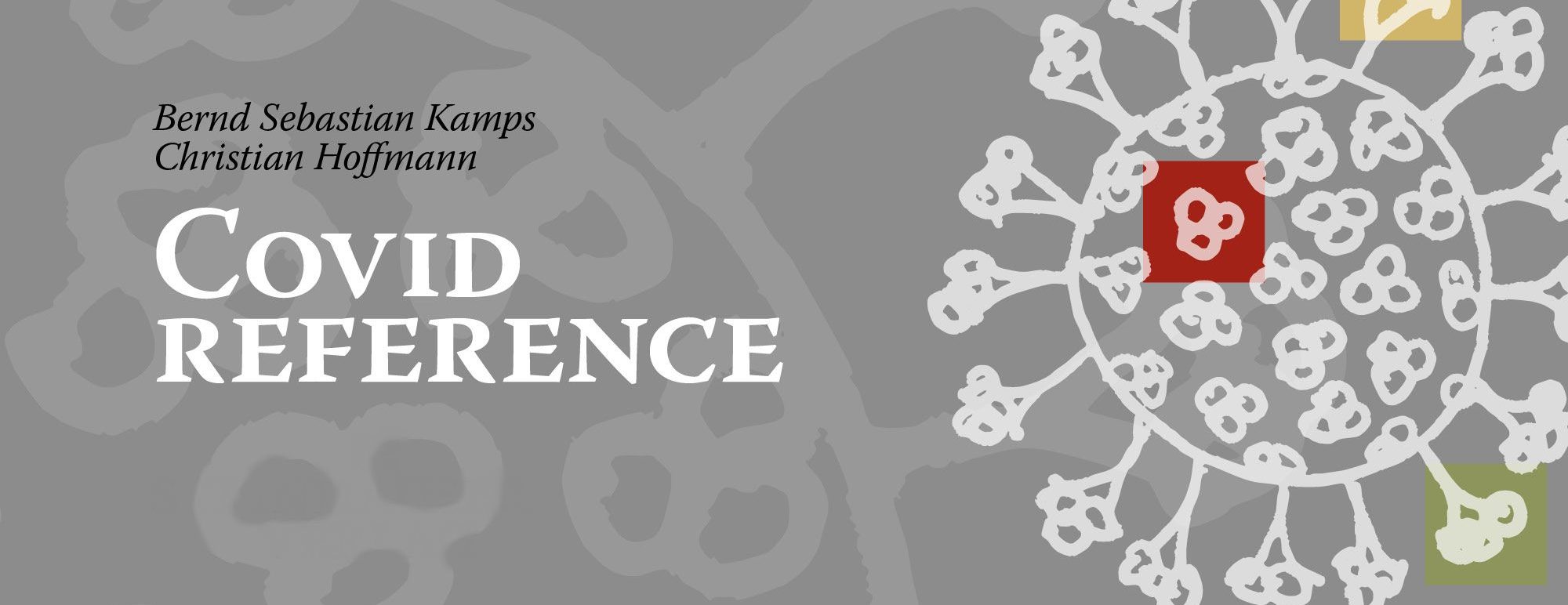Copy-editor: Rob Camp
Variants
Paper of the Day
Davies NG, Abbott S, Barnard RS, et al. Estimated transmissibility and impact of SARS-CoV-2 lineage B.1.1.7 in England. Science 03 Mar 2021: eabg3055. Full-text: https://science.sciencemag.org/content/early/2021/03/03/science.abg3055
Difficult months ahead: the B.1.1.7 variant emerged in southeast England in November 2020 and is rapidly spreading toward dominance. In this brilliant article, Nicholas Davies and colleagues from London estimate that this variant has a 43–90% (range of 95% credible intervals 38–130%) higher reproduction number than pre-existing variants. A fitted two-strain dynamic transmission model shows that B.1.1.7. will lead to large resurgences of COVID-19 cases. Without stringent control measures, including limited closure of educational institutions and a greatly accelerated vaccine roll-out, COVID-19 hospitalizations and deaths across England in 2021 will exceed those in 2020.
Virology
Murray CJ, Piot P. The Potential Future of the COVID-19 Pandemic. JAMA March 3, 2021. Full-text: https://jamanetwork.com/journals/jama/fullarticle/2777343
Will SARS-CoV-2 become a recurrent seasonal Infection? Peter Piot and Christopher Murray don’t know, how could they? According to their nice viewpoint, there is too much uncertainty about the probability and frequency of emergence of new variants, the reduction in vaccine efficacy for each variant, the critical question of cross-variant immunity, and the consistency of safe human behavior. However, the prospect of persistent and seasonal COVID-19 is real.
Immunology
Le Bert N, Clapham HE, Tan AT. Highly functional virus-specific cellular immune response in asymptomatic SARS-CoV-2 infection. J Exp Med March 1, 2021. 218 (5): e20202617. https://doi.org/10.1084/jem.20202617
Nina Le Bert and colleagues from Singapore studies T cells longitudinally in a cohort of asymptomatic (n = 85) and symptomatic (n = 75) COVID-19 patients after seroconversion. Important findings: asymptomatic SARS-CoV-2-infected individuals are not characterized by weak antiviral immunity; on the contrary, they mount a highly functional virus-specific cellular immune response.
Vaccine
Kimberly G. Blumenthal KG, Freeman EE, Saff RR. Delayed Large Local Reactions to mRNA-1273 Vaccine against SARS-CoV-2. NEJM, March 3, 2021. DOI: 10.1056/NEJMc2102131. https://www.nejm.org/doi/full/10.1056/NEJMc2102131
Case series of 12 delayed large but varying local reactions to the mRNA-1273 vaccine, with a median onset on day 8 after the first dose. After the second shot, 6 had no recurrence, 3 had similar and 3 had recurrent reactions that were of a lower grade than those after the initial dose.
Kadire SR, Wachter RM, Lurie N. Delayed Second Dose versus Standard Regimen for Covid-19 Vaccination. N Engl J Med March 4, 2021; 384:e28. DOI: 10.1056/NEJMclde2101987. https://www.nejm.org/doi/full/10.1056/NEJMclde2101987
Nice case vignette on the question of whether we delay the second dose. Robert M. Wachter says yes, Nicole Lurie says no. No clear winner.
Transmission
Shumsky RA, Debo L, Lebeaux RM, et al. Retail store customer flow and COVID-19 transmission. PNAS February 26, 2021. https://doi.org/10.1073/pnas.2019225118
Nice modelling study on how customer flows in retail stores affect the rate of COVID-19 transmission. The model calculates the disease transmission rate in a retail environment and determines how the rate depends on the customer flow policy (one-way versus two-way), the travel speed distribution, and store size. Restricting customer flow to one-way movement is highly effective if direct exposure is the dominant mode of transmission. However, it is not effective if more indirect (“wake”) exposure dominates.
Schumm MA, Hadaya JE, Mody N, et al. Filtering Facepiece Respirator (N95 Respirator) Reprocessing: A Systematic Review. JAMA. March 3, 2021; doi: 10.1001/jama.2021.2531. https://jamanetwork.com/journals/jama/fullarticle/2777342?resultClick=1
Max A. Schumm and colleagues have reviewed 42 studies (through January 31, 2021) that examined 65 types of masks. Ultraviolet germicidal irradiation, vaporized hydrogen peroxide, moist heat, and microwave-generated steam processing effectively sterilized N95 respirators and retained filtration performance. Ultraviolet irradiation and vaporized hydrogen peroxide damaged respirators the least.
Collateral damage
Knudsen AK, Stene-Larsen K, Gustavson K, et al. Prevalence of mental disorders, suicidal ideation and suicides in the general population before and during the COVID-19 pandemic in Norway: A population-based repeated cross-sectional analysis. Lancet Regional Health February 27, 2021. Volume 4, 100071, May 01, 2021DOI: https://doi.org/10.1016/j.lanepe.2021.100071
Credible data from Norway: except for a decrease in mental disorders in the first pandemic period, the findings suggest stable levels of mental disorders, suicidal ideation and suicide deaths during the first six months of the COVID-19 pandemic compared to pre-pandemic levels.
Treatment
Touafchia A, Bagheri H, Carrié D, et al. Serious bradycardia and remdesivir for coronavirus 2019 (COVID-19): a new safety concerns. Clin Microbiol Infection February 26, 2021. DOI: https://doi.org/10.1016/j.cmi.2021.02.013
Oops: this post-marketing study in a real-world setting suggests that the use of remdesivir is significantly associated with an increased risk of reporting bradycardia and serious bradycardia when compared with the use of hydroxychloroquine, lopinavir/ritonavir, tocilizumab or glucocorticoids.
Lamontagne F, Agoritsas T, Siemieniuk R, et al. A living WHO guideline on drugs to prevent covid-19. BMJ. 2021 Mar 1;372:n526. PubMed: https://pubmed.gov/33649077. Full-text: https://doi.org/10.1136/bmj.n526
This is the first version of a living (up-to-date, evolving and EBM) guideline, focusing on the evidence for hydroxychloroquine. 53 authors from 45 centers say on 12 pages, “Do not use it!”
